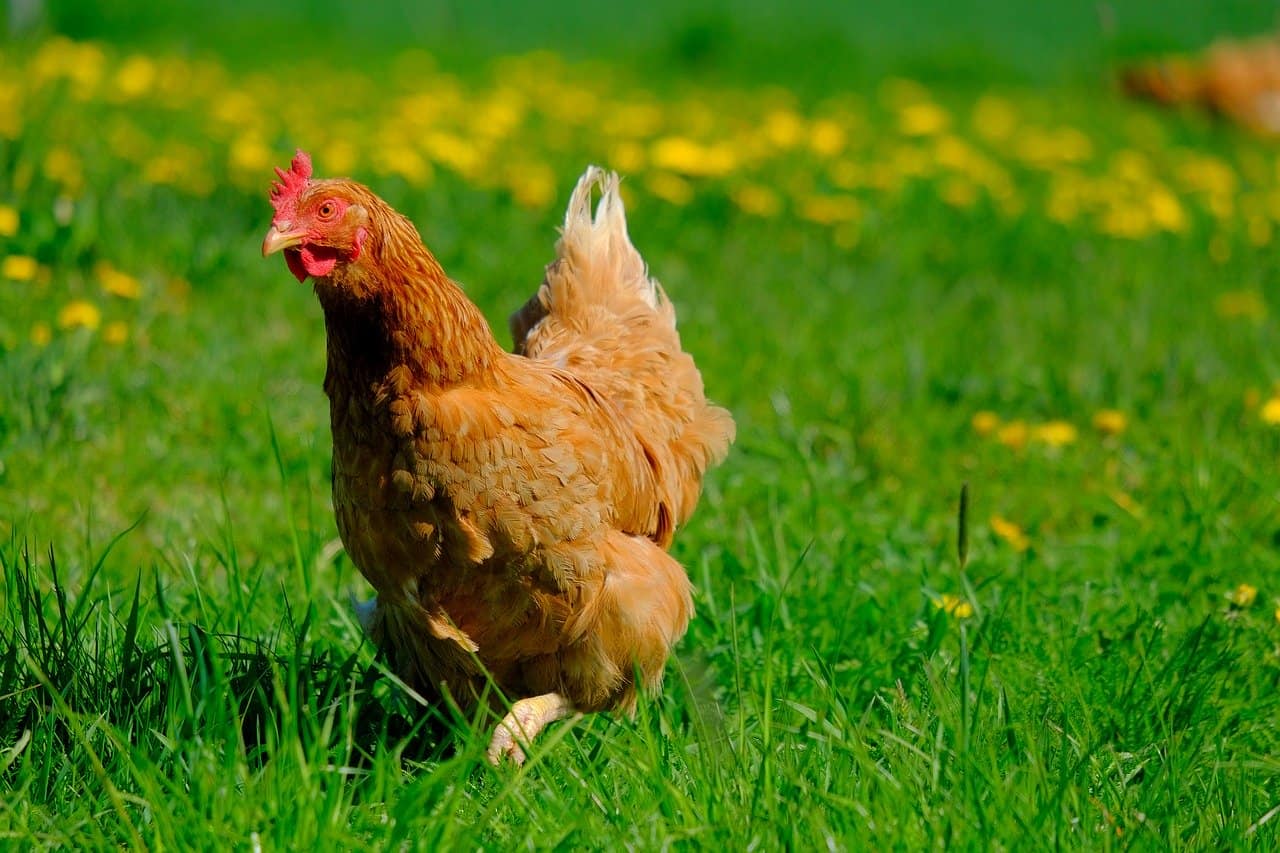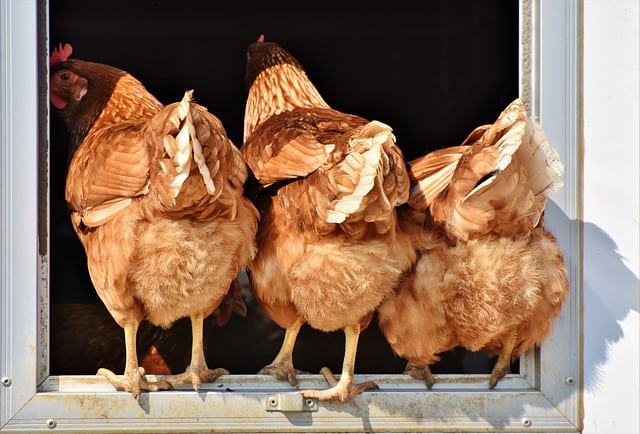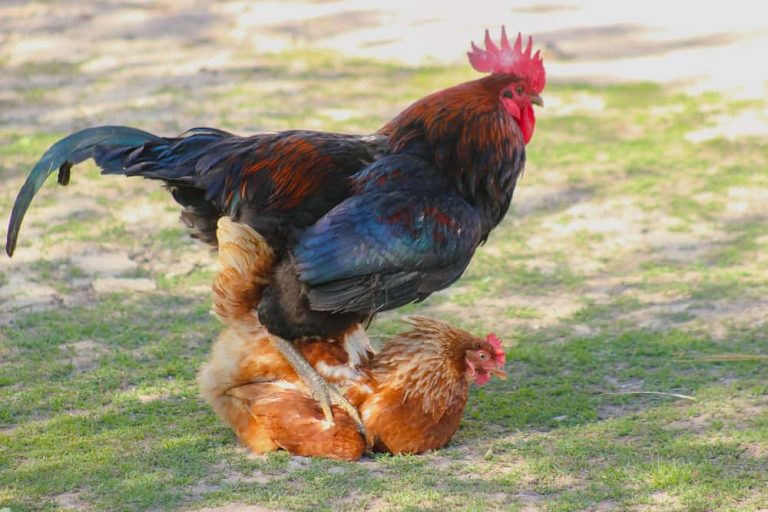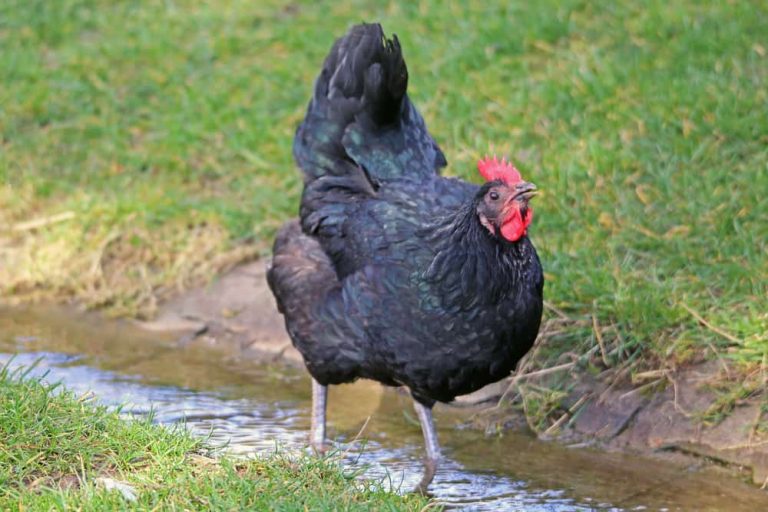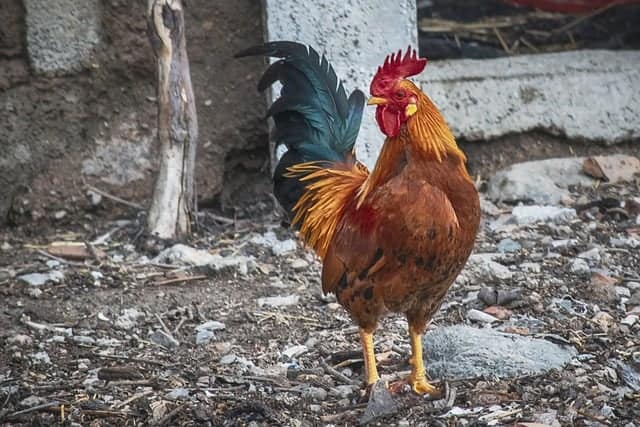Raising backyard chickens really isn’t that difficult, especially compared to the amount of effort and time you’d have to invest in keeping pigs or cattle, for example. Even sheep and goats call for more care and attention compared to chickens.
As amazing as they might be, keeping chickens can still be a huge responsibility. You should analyze whether you are prepared to tackle it before getting your first egg-laying hen.
You’ll have to decide on a variety of things, from the chicken breed to the amount of space you have available and the number of birds that you can keep without stressing them. Also, raising backyard chickens isn’t the cheapest activity in the world.
Without further ado, here are ten questions that you should responsibly ask yourself before you get into chicken farming.
Contents
1. Is raising chickens legal where you live?
In case you didn’t know, chicken farming laws depend on the state or city you live in. Even though in many cases, there aren’t specific regulations in place, there are some areas that have developed restrictions.
For example, you are most commonly not allowed to keep more than six chickens if you don’t have a large backyard or aren’t authorized to farm and sell chickens. Residents of California are allowed to keep only hens both because roosters make a lot more noise and because the latter have more aggressive behavior.
Another reason why municipalities don’t allow farming too many chickens is that they attract rodents.
If you live in a town, this means that you will put the entire community in danger since rats, raccoons, foxes, and other predators that might be interested in the eggs or even the chickens themselves can spread a lot of diseases, many of which can be passed on to humans.
You’ll be able to keep chickens as pets if you live in the city, but once again, no more than 6. Make sure to check the regulations that exist in your region before purchasing your first birds.
2. Is it something you can afford?
How much does keeping backyard chickens cost? Considering the legal limitations involved, you aren’t going to spend a fortune on the birds themselves. However, do keep in mind that chickens need a coop, a run, enough space, fencing to protect them from predators, and even heating, in some cases.
The cost of chickens varies largely from one type of breed to the next. For instance, while a Cream Crested Legbar is going to set you back 20 dollars or more, you aren’t going to pay more than $4 or $5 on a ‘less exotic’ chicken such as a Rhode Island Red.
As we were mentioning, the expense of raising chickens isn’t limited to the actual purchase of the birds. You will have to spend some money on a feeder and waterer and on a chicken coop.
While the cost of some coops can be as high as six to seven hundred dollars, there are some ways you can circumvent this problem.
There are lots of online tutorials on sites like Instructables and YouTube that you can make use of if you have DIY skills. The cost of the materials is about half of a ready-made coop and even less if you use salvaged materials such as wood planks or even old furniture that you take apart.
3. Do you have enough space for your birds?
Every chicken needs at least 4 square feet of space inside the coop and a minimum of 10 square feet of outdoor space.
Given that overcrowding can cause a variety of problems such as a drop in egg production, the appearance of disease, and stress that leads to aggressive behaviors (and cannibalism is not uncommon in stressed birds), you have to make sure that you have enough room for your flock.
There’s always the option of keeping fewer chickens or miniature breeds instead of going beyond your space-related limitations.
4. Can you commit in terms of time and effort?
Even though chickens need less care than other birds or animals, you will have to check up on them regularly throughout the day. You’ll have to give them fresh food and water every morning and every evening.
However, you will also have to check whether their health is on par, whether one or several haven’t disappeared, whether there aren’t any traces of predators, or if something broke and needs to be replaced.
On top of that, you’ll have to clean the bedding, and some people are just too sensitive to handle this task. As you can see, chicken farming isn’t the easiest task in the world.
The location of the nearest farm store also has a lot to say when it comes to raising backyard chickens. If it’s very far away from your house, you might have a hard time getting supplies on a regular basis.
Sure, nowadays, you can order some of the supplies online, but not all of them. If you get chicken feed in bulk, for example, you might have a hard time finding a store that can deliver such large amounts of it.
5. Do you have problems with your neighbors?
If your neighbors raise backyard chickens themselves, you aren’t going to run into any issues with them. However, there are individuals who are seriously bothered by the smell or the amount of noise that a flock of chickens can make during a day.
If you don’t keep a rooster aside from your hens, the likelihood of your neighbors expressing concerns that have to do with the noise is far lower.
Keep in mind that chickens also let out a specific sound whenever they lay an egg. This type of ‘song’ can make the other birds join in, too, so in the end, there will be some noise made in the daytime or at night.
6. Do you have any other pets?
The vast majority of pets (whether they are dogs or cats) get along perfectly fine with chickens, but there are some that can feel threatened by them or that can get aggressive toward them.
This can depend on your dog breed, for instance, since some of the hunting ones are effectively programmed to hunt down and even kill birds or other types of prey.
So, if you know that you might be confronted with this problem, it might be a good idea to get just one chicken and see how your pet reacts to it. If the outcome isn’t a positive one, you can always build fencing around your chicken area so that your pet has no means of getting in.
There is another solution to this problem and it’s keeping either geese or ducks. These are far more resilient and also unwilling to take the abuse of animals that might want to harass them.
7. Can you protect your chickens against predators?
As much as you try to keep your chickens as healthy and as protected as possible, sometimes there could still be a raccoon or a fox that could get into their coop.
There are some things to do, of course, such as getting a very high chain link fence that you can place around the chicken run. Unfortunately, this can set you back a lot of money. It’s actually not uncommon for you to have to spend as much as several thousand dollars to fence in a larger run.
If you have a dog that has a protective behavior and that gets along well with your flock, you could set up the dog house inside the chicken run. During the night, a canine friend can be extremely helpful when it comes to keeping your chickens safe.
8. What types of chickens are you looking to raise?
Chicken breeds can be very different from one another, both in terms of how picky they are and how challenging to care for, but also in terms of what they can do for you.
Even if you decide to raise backyard chickens as pets, they are still going to lay eggs, so you will inevitably consume them or at least feed them back to them.
The reason you should decide on a specific type of chicken or a combination of them is that they can either lay eggs or be raised for meat. You’re going to keep your egg-layers for a longer amount of time since there’s no point in removing them from the flock if you’re satisfied with them.
You can’t expect a chicken to live for more than five years, regardless of the breed. You also have to deal with the task of killing and preparing the chickens for meat consumption if that’s your primary purpose. Some people just aren’t made for that, so do consider your choice as best as possible.
9. Who will care for your chickens when you are away?
There are a number of situations where you might be unable to provide your flock with the right care and attention. You can get injured in an accident, meaning you might spend time in the hospital.
What will happen to your backyard chickens during this time? Surely you aren’t going to let them starve to death, right?
If you want to prevent such mishaps for the foreseeable future, you need to have a serious talk with the rest of your family and decide who’s going to assume the responsibility of caring for your birds if you are unable to do so.
Are you planning a long-distance trip to your relatives in the South? As amazing as your vacation might sound, you’ll have to get help from someone if your whole family leaves home.
Someone will have to at least give your flock food and water in the morning and tend to the cleaning chores on a regular basis. If you don’t have a friend you can ask, in this case, you will have to hire someone to do it, and it can get expensive if you’re going to be away for more than a week.
10. Have you done enough research?
Chickens are pretty hardy animals, but they can suffer from a wide range of diseases. Naturally, some of them can happen because you might not be able to provide them with the right care.
To give you an example, if you don’t partly and completely remove their bedding on a regular basis, their poop can retain a large number of bacteria and parasites. You might risk endangering your entire flock’s health if you don’t routinely clean up their run, coop, and even the nesting boxes.
On top of that, you should consider that chickens also need a number of vaccinations. You should first find out where the nearest vet clinic is located and whether that vet also specializes in treating farm animals. There are veterinarians out there who treat pets exclusively.
Other considerations
- Climate
The climate of the area where you live has a lot to say when it comes to managing your chicken raising situation. If you live in a warmer climate, you’ll have to go through less hassle in terms of providing your birds with enough heat.
On the other hand, if you live in a colder area, you might have to set up heaters so that your chickens remain healthy and happy.
Remember, chickens that live in a too cold climate can have a lower egg production and can also be prone to developing many diseases, especially those that involve the respiratory tract.
- Purpose
The temperament of the chickens you will get is also important, as if you get calmer breeds and only hens, you will be able to avoid conflicts in the flock.
Last, but not least, you should ask yourself what your primary purpose in raising chickens really is. Do you want eggs or are you also planning to consume their meat? There are mixed breeds that do well for both of these goals, but some are specifically engineered to lay more eggs and have less meat to offer you.
The more chickens you have, the more noise they’ll make, so that is another factor to take into account.
- Poop
What are you going to do with all the poop? This can be a serious problem for someone who is not willing to invest a lot of time and effort into an activity such as composting, for example. There might not even be businesses that collect animal waste in your area, which might make matters even more complicated.
- The plants and flowers in your garden are going to suffer
As a final note, since chickens aren’t the cleanest animals in the world and they tend to get in every little place, you should keep your gardening expectations at a minimum. Some chicks can even turn flower pots into nesting boxes if you leave them to.

